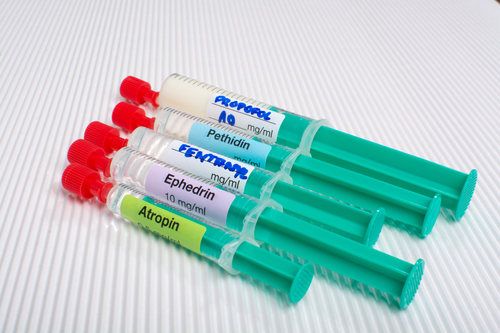
Fentanyl Addiction Perpetuating High Overdose Rates
With the sudden death of American pop star Prince, fentanyl addiction has become a sudden concern for the recovery community. But, this debilitating substance has been recreationally abused on United States streets since the 70s, causing numerous overdoses. Since the opioid epidemic does not seem to be going anywhere shortly, it is important to identify different opiates and their tendencies, including the examination of fentanyl addiction.
Uses for Fentanyl: Medical and Recreational
Fentanyl is one of the most powerful opiates that you can find on the market. Initially discovered and utilized as a medical treatment, it offers a fast-acting and short-lived high. Given to patients struggling with chronic pain due to post-surgery experiences and diseases like cancer, it serves its medical purpose well. But, for those looking for an illegal opiate fix, this drug can lead to death by overdose.
In fact, for many years fentanyl has been a means to cut heroin. In other words, fentanyl is used as an additive to street drugs like heroin, causing individuals trying to get their fix to use fentanyl without any knowledge of doing so. After some time, this has been brought to attention since sudden and mass overdoses were occurring and autopsies identified fentanyl as the cause.
Today, fentanyl is known on the streets as “fake heroin” for its similar effects and short-lived symptoms. This nickname is unfitting and severely under-exaggerated since fentanyl is up to 100 times stronger than heroin.
How Do Individuals Use Fentanyl?
Besides as a powder form added to illicit street drugs, this drug is available in many forms, including pills or dissolvable strips. In medical settings, fentanyl is administered liquid form, through IV. Otherwise, there are time-release options for fentanyl in the form of skin patches and even candy lollipops. This then allows for drug distribution over time, enabling longer drug effects.
The Dangers of Using Fentanyl
With proper administration and medical guidance, fentanyl can be a great help to patients in pain. But, for those who use it outside of medicinal applications, or even those who are hooked on their prescription to fentanyl, addiction can cause lasting side effects. Long-term effects of using fentanyl are proven to include the prolonged impaired judgment in daily situations. Also, use of fentanyl raises the risk of organ failure due to imbalanced oxygen levels in the bloodstream. Additionally, the longer a person uses fentanyl, the longer they put themselves in danger of overdose and death. This is because overdose is frequent in even first-time fentanyl users. Symptoms of a fentanyl overdose include:
- Trouble swallowing
- Heart failure
- Failure to breath
- No responsiveness to pain
- Fatigue
- Fainting
- Altered state of consciousness
- Extreme confusion
Recognizing Fentanyl Addiction
An individual never pre-plans a fentanyl addiction. It happens fast and without warning since tolerance develops in even first time users. This means that the body needs a higher dose upon administration, even after the second use, in order to feel the drug’s effects. With every use, tolerance for the drug rises. After tolerance, the body experiences dependence. This means that after a patient receives fentanyl, withdrawal symptoms may appear. Symptoms of fentanyl withdrawal usually happen about a day after the drug is not used and include effects of:
- Exhaustion
- Cold sweats
- Involuntary tearing
- Body chills
- Body shakes
- Back spasms
- Constipation
- Muscle strains
- Body aches
- Runny nose
Treatment Strategies for Fentanyl Addiction
Since withdrawal from fentanyl is neither fun nor easy, medical professionals can help make individuals as comfortable as possible. It can be dangerous to wean and detox from fentanyl alone since the withdrawal symptoms can leave a person unable to care for their own needs. Additionally, having medical supervision allows constant monitoring of bodily functions to allow for a successful detox. After detox, individuals that have been using fentanyl without a medical prescription and have developed addiction should enroll into residential rehabilitation treatment for the best chance of addiction recovery success. During treatment, behavioral therapy, individualized and group counseling, and relapse prevention, strategies help determine the underlying causes of addiction. Doing so can help an individual prepare themselves for reintegration in society and a life of sobriety. With the proper support and effort, treatment for fentanyl addiction is possible.
Addiction to fentanyl results in an individual displaying characteristics that are unlike their original personality. Those that develop addictions will likely lie to loved ones, steal, and neglect responsibilities that were once important to them. If you are struggling with an addiction to fentanyl, get help right away. Each time that you use fentanyl, you are putting your own life in jeopardy. Help is available to you, but time is of the essence!






